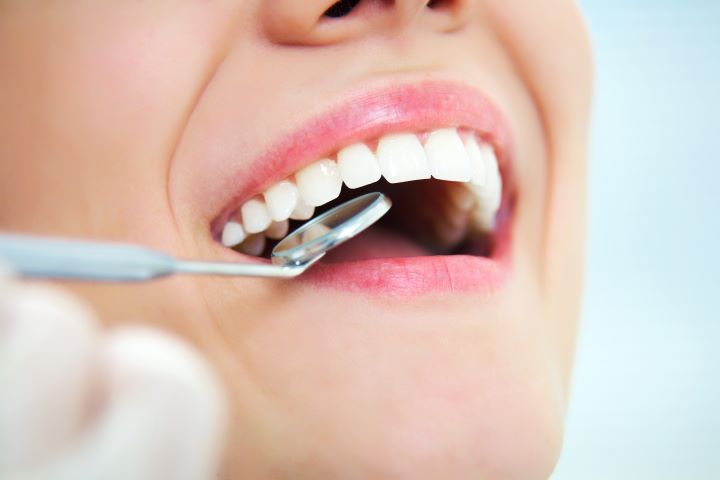Full Mouth Dental Implants Cost Overview in United States 2025
Considering full mouth dental implants? This guide outlines the expected price ranges, key factors influencing costs, and available payment options in United States for 2025. Understanding these aspects can help you plan effectively for this comprehensive dental treatment.

Full mouth dental implants offer a permanent solution for individuals who have lost most or all of their natural teeth. This comprehensive treatment involves replacing an entire arch of teeth with implant-supported prosthetics, providing improved function, aesthetics, and quality of life. The investment required for full mouth implants reflects the complexity and long-term benefits of this advanced dental procedure.
Full Mouth Dental Implants Cost Components in United States
The total cost of full mouth dental implants encompasses several distinct components that contribute to the overall investment. Initial consultation and diagnostic imaging, including CT scans and X-rays, typically range from $200 to $500. The surgical placement of implants forms the largest portion of the expense, with individual implant placement costs varying between $1,500 and $3,000 per implant. Most full mouth restorations require 4-8 implants per arch, depending on the chosen technique.
Prosthetic components add substantial cost to the treatment. Custom-fabricated crowns, bridges, or overdentures designed to attach to the implants can range from $1,000 to $3,000 per tooth replacement. Laboratory fees for creating these precision-crafted restorations typically account for 20-30% of the prosthetic costs. Additional procedures such as bone grafting, sinus lifts, or tissue grafts may be necessary, adding $500 to $3,000 per site to the total investment.
Factors That Influence the Cost of Full Mouth Implants
Geographic location significantly impacts full mouth implant costs across the United States. Urban areas and regions with higher costs of living generally command premium pricing for dental procedures. The complexity of individual cases affects pricing, with patients requiring additional procedures like bone grafting or extractions facing higher costs. The type of restoration chosen influences the final investment, with fixed bridges typically costing more than removable overdentures.
The experience and specialization of the dental team also affects pricing. Oral surgeons and periodontists who specialize in implant placement may charge more than general dentists, but their expertise often leads to better outcomes. The quality of materials used, including implant brands and prosthetic materials, creates price variations. Premium implant systems and high-grade ceramics command higher fees but may offer superior longevity and aesthetics.
| Treatment Option | Provider Type | Cost Range |
|---|---|---|
| All-on-4 (per arch) | Oral Surgeon | $15,000 - $30,000 |
| All-on-6 (per arch) | Periodontist | $20,000 - $35,000 |
| Individual Implants (full mouth) | Prosthodontist | $25,000 - $50,000 |
| Implant Overdentures (per arch) | General Dentist | $12,000 - $25,000 |
Prices, rates, or cost estimates mentioned in this article are based on the latest available information but may change over time. Independent research is advised before making financial decisions.
Financing and Payment Options in 2025 United States
Most dental practices offer financing solutions to help patients manage the substantial investment required for full mouth implants. Third-party healthcare financing companies like CareCredit, LendingClub, and Prosper Healthcare Lending provide specialized payment plans with various interest rates and terms. Many of these programs offer promotional periods with zero or low interest rates for qualified applicants.
In-house payment plans allow patients to work directly with their dental provider to establish manageable monthly payments. Some practices offer cash discounts for patients who can pay the full amount upfront. Health Savings Accounts (HSAs) and Flexible Spending Accounts (FSAs) can be used to pay for implant procedures with pre-tax dollars, effectively reducing the overall cost for eligible individuals.
Understanding Insurance and Government Support in United States
Traditional dental insurance typically provides limited coverage for implant procedures, often classifying them as cosmetic rather than medically necessary treatments. Most plans cover only a small percentage of implant costs, with annual maximum benefits rarely exceeding $2,000. However, some insurance policies may cover portions of the treatment, particularly if tooth loss resulted from trauma or disease.
Medicare generally does not cover dental implants, though Medicare Advantage plans may offer limited dental benefits. Medicaid coverage varies by state, with some programs providing emergency dental care or basic restorative treatments. Veterans may qualify for implant coverage through VA benefits if tooth loss is service-connected. Some employers offer supplemental dental insurance plans that provide enhanced coverage for major procedures like implants.
Suitability and Eligibility Considerations
Successful full mouth implant treatment requires adequate bone density and volume to support the implants. Patients with significant bone loss may need preparatory procedures like bone grafting, which extends treatment time and increases costs. Overall health status affects eligibility, as certain medical conditions or medications can impact healing and implant success rates.
Age is generally not a limiting factor for implant treatment, though younger patients must have completed jaw development. Lifestyle factors such as smoking significantly impact implant success rates and may affect treatment planning. Patients must demonstrate commitment to excellent oral hygiene and regular dental maintenance to ensure long-term implant success.
Full mouth dental implants represent a substantial financial investment that can dramatically improve quality of life for appropriate candidates. While costs vary significantly based on individual needs and geographic location, understanding the various components and financing options helps patients make informed decisions about this life-changing treatment. Consulting with qualified implant specialists provides personalized cost estimates and treatment planning tailored to individual circumstances.




